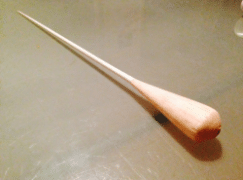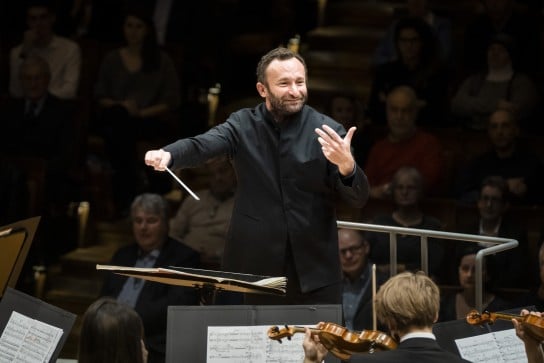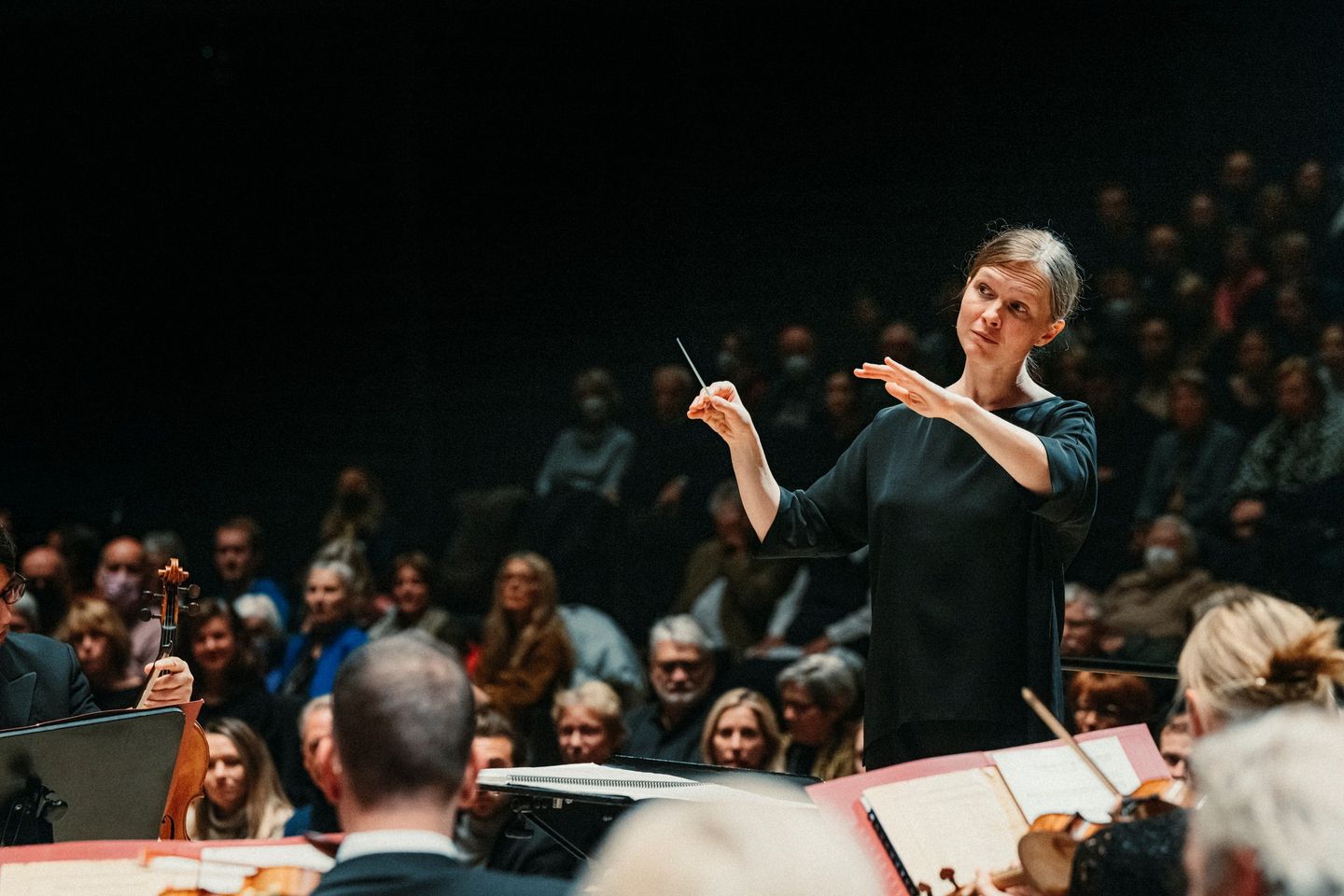The musicians who won’t be coming back
NewsThe Pittsburgh Post Gazette has a fascinating feature by Jremy Reynolds on professional musicians who found other things to do during Covid and won’t be returning to their previous occupations.
One is designing gyms, another is growing coveted bonsai trees, a third is teaching the Alexander technique.
The shakeout is extensive.
Local bass player Jesica Sharp Crewe, 37, had a side gig assisting with real estate transactions prior to the pandemic and began taking Alexander technique courses in the summer of 2020. The Alexander technique develops improved movement and posture and has grown popular as a form of physical therapy among musicians. It takes three years to become a certified teacher, and she sees the certification as “another piece of the puzzle” in her career portfolio….
Violinist Stefani Schore said that she knows many musicians who transitioned into coding due to the creativity involved. She decided to attend the Tech Elevator coding boot camp in December, graduated in April and walked into a full-time position at PNC Bank a week later.

Read on here.






Humm, humm… maybe it’s for the best, no? 😉 If they are so little dedicated to the art of music, maybe better to fool around with a little bonsai tree or selling insurance… just my opinion, of course 😉
Art is wonderful and fulfilling. So is food. I can’t blame them considering how little support artists receive in the US.
I know! If we’re not willing to die for our art, or at least become homeless, then how dedicated can we claim to be?
Yay! another bitter troll. After reading your mean-spirited, ignorant comment I considered posting a rational, well thought out rebuttal but all I’ve came up with is, b***h, please.
According to President Biden, the answer is clear when it comes to the diverse world of classical singers, players and the like.
PAY MORE!!!!!
Typical uneducated MAGA comment by Alexander.
Think on it Alexander. Does artistic dedication pay the rent, let alone enable you to live a varied and satisfying life? No, of course not. These folk weren’t at the top of their trade to be fair but with a lot of dedication and some good luck, some might have gone further. Who knows?
Now they are just being realists. They haven’t given up entirely for the most part, they are taking stock. Good for them. At least they’ll have some connections with the old world of music and hopefully, some happy memories.
They may be the first to have to rethink but I have more than a suspicion that quite a few of those at the top end of the pyramid might sooner or later find themselves in a similar situation. Let’s wait and see.
Absolutely right. There are countless musicians playing at a very high level who may not be able to live from their craft, ever. It’s a simple question of supply and demand — there simply aren’t enough opportunities for everyone. Getting an orchestra job or teaching position remains a highly subjective endeavor that is not necessarily reflective of talent — not to mention the even unlikelier prospects for a solo or chamber music career. Anyone thinking this means a lack of dedication simply hasn’t experienced this firsthand. There comes a point when lack of financial security and stability becomes a real problem that can no longer be postponed, not to mention the grim risk/reward ratio in pursuing a career in classical music where talent and effort can simply be ignored. I suspect this trend not only applies to people already employed, but might equally drive aspiring musicians to reconsider their career choices, given the scarcity of opportunities — which any young musician nowadays probably should, given the reality of the market.
I was making well over 100k touring with a Broadway show before the pandemic. Currently, my career is toast. So, I’m looking for work elsewhere. I guess I’m a failure, Alexander?
Hm… could be 😉 just my opinion, of course 😉
Begging at every turn like Mr. Lebrecht does is a viable alternative, no?
“WANT ACCESS TO EVEN MORE CONTENT? BECOME A MEMBER!
We are doing our best to ensure that Slipped Disc is free to all readers. However, like every other news site, we have costs to bear and are urging readers to help share them.
As a first step we encourage you to take membership at US$75/£55 a year, or $140/£95 for three years.
Membership benefits will include a daily digest of stories delivered to your email, and occasional exclusive offers from our partners.
Select your subscription length below and head to the checkout:
SUBSCRIBE”
You’re not a failure, you just don’t have any dedication to your art.
/eyeroll
There was a study done about 10 years ago on job satisfaction. Orchestra musicians ranked at the bottom because they feel they have so little control over their work, while chamber musicians and airplane pilots were the most satisfied because of the high levels of autonomy they have.
So yeah, I wonder how many orchestra musicians after having a year and a half to reflect on their job are going to pursue other careers
I wonder what airplane pilots they had in that survey. Commercial pilots are told what to fly, when to fly, how to fly and they have to follow long checklists to make sure they do all of it right.
So that’s autonomy?
From the article:
Other musicians learned to code. Violinist Stefani Schore said that she knows many musicians who transitioned into coding due to the creativity involved. She decided to attend the Tech Elevator coding boot camp in December, graduated in April and walked into a full-time position at PNC Bank a week later.
Did anyone else notice the timeline between deciding to pursue the career and landing a full-time job? Even assuming that she knew something about it beforehand.
Consider a parallel universe, where someone starts attending a training program to become a violinist in December, graduates in April, and lands a full-time job with a full-time professional symphony orchestra a week later…
I made this transition some years ago. (I’ve kept my orchestra job though.)
Of course people understand the new career (physical therapy) much more easily. When you tell them what you do, they don’t reply “I meant what do you do for work,” or ask if you get paid to do it, or refer to it as a “hobby” after being told that you do in fact get paid to do it.
But the funny thing with “normal people” jobs — the shameful secret, if you will — is that you don’t have to be especially good at them. When I started my PTA (Physical Therapist Assistant) program, they told us: “You should all be very proud of yourselves. This year the selection process was especially competitive: we only accepted 16 people out of 124 applicants!”
I thought, you’ve got to be kidding — that’s competitive? That’s like a 13 percent acceptance rate! I’ve been at flute auditions with 124 applicants, and the acceptance rate was one (1/124 = 0.8%), or even zero. And then when I graduated and applied for my job, they didn’t tell me if there were other applicants, but with subsequent vacancies there have usually been about 5-7 who applied.
So to get into the program, I only needed to be 16th best out of 124; the music school I went to accepts 5 flute students each year, from around the world. I had (had) a friend who derided Eastman as being “not selective” because they accepted so many wind players. His teacher, after all, taught at Juilliard. (He didn’t go to Juilliard himself, but his brother did. And he’d gone to pre-college there and had friends who went to Curtis, so he definitely knew what was good and what wasn’t.)
And well, yes — once you have a PT job, you do need to be decent at it so your patients get better and don’t die. So the stakes are higher, but the job itself (my job, anyway) is actually quite a bit easier than playing in an orchestra. And becoming an employed PT assistant is MUCH, MUCH easier than becoming an employed musician.
Sometimes I think normal people think musician jobs are easy to get, like theirs are; or you can just decide one day that you’re going to be one, and six months later voilà — there you are. And you start applying for jobs, and eventually you just kind of, y’know… get one. (When I applied for my flute job, it was the first principal flute opening listed in the US in 3 months. When I applied for my summer opera job, it was the first principal flute summer job, opera or otherwise, in 3 years.)
People like Alexander have no f**ing idea what they’re talking about.
“…once you have a PT job, you do need to be decent at it…” Sorry, but not necessarily true. A Johns Hopkins study found medical errors are the third-leading cause of death in the US.
Monsoon is correct about orchestra players, however.
Managements can be incredibly demoralizing for musicians. I find most of them tend to have the same pathetic groupthink from orchestra to orchestra.
Yes — people make mistakes, even those who are highly paid not to. In music, the consequences of making a mistake, even a bad one, are trivial; in medicine they can be enormous and irreversible.
That’s why (or part of why) the medical field has things like licenses, licensing requirements, license review boards, malpractice insurance, continuing education requirements since researchers are always
flip-floppinglearning new things.Good point on medical mistakes. Medical licenses, like most licenses are to help keep the supply of doctors low to help keep the cost of them up to consumers. This was done in the early 20th century. There could easily be different levels of doctors with different expertise. Most doctors have little time for continuing education because of all the patients. They generally go with what they’re told without finding out for themselves (we won’t go into threats for their jobs nowadays if they buck the establishment.)
Hayne: “edical licenses, like most licenses are to help keep the supply of doctors low to help keep the cost of them up to consumers.”
Err…in most of the civilised world consumers don’t have to pay since there is universal health coverage by the state. The state, for obvious reasons, wants to keep the costs of healthcare as low as possible.
Schwann’s Ice Cream is hiring new drivers for door-to-door ice cream delivery. Good day job for a violist.
And as a postscript to my comment above I think that we can spot another trend. (I’m referring to UK conditions here) These dedicated players have given it their best shot and many will continue to do so come what may. What others have discovered though is that the world of classical orchestral playing is woefully underpaid. Even with the usual portfolio of playing and teaching their income wouldn’t be anything to get excited about. And it won’t get better either.
Think on this…my washing machine needed fixing. It needed a door seal that could at a pinch be a DIY job but best not.
The guy came and fixed it. It took him30 mins plus his travelling time etc. His fee was not too far off the standard fee for a 3 hour rehearsal and concert for a normal player. I paid it willingly because I couldn’t do the job myself.
Turning this around, how many people have questioned my standard, quite modest teaching rate or tried to get me to play some gig for a low fee because they can’t/don’t want to pay more?
Makes you think!